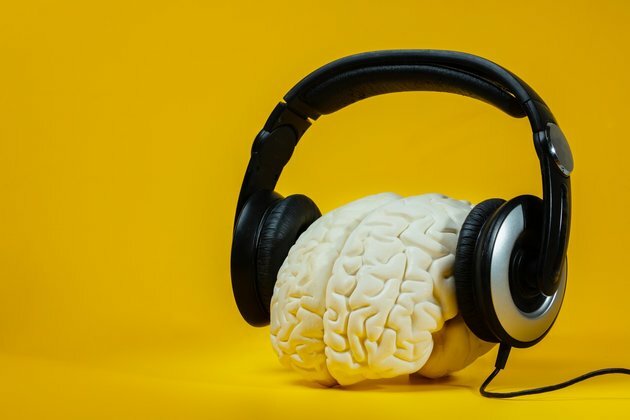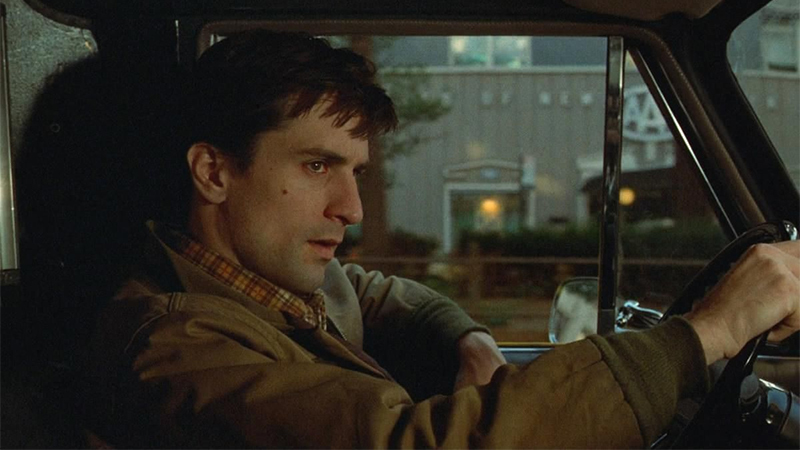How movies use music to manipulate your memory
The Conversation
21 Nov 2023, 00:08 GMT+10

Around one in five American adults manage to squeeze in watching a movie on a daily basis. It's a great way to escape the daily grind and unwind with loved ones. But, what can you actually remember about last night's film?
You may be able to remember the title, the rough story outline or the Hollywood star who acted in it. But dig a little deeper. How easily does a specific movie sequence come to mind right now? And more importantly, can you hear or recognise the film's musical score?
Filmmakers have long used music to try to make movies, scenes and characters more memorable. Now psychological research has started to uncover the science behind this process.
Music is so closely ingrained in our cinematic experience that we sometimes end up having false memory for it. One study showed that, after watching a brief movie sequence, up to two-thirds of participants believed that the sequence was accompanied by a musical score - even when it wasn't. Scientists call this "expectancy bias".
A successful musical score often involves earworms - songs that stick in our minds. These tend to be songs that have achieved great success and recent runs in the music charts.
When paired with a movie sequence, fresh takes on old hits help keep audiences entertained. Their sing-along, foot-tapping familiarity reflect the huge exposure they've had for decades. They are therefore readily exploited as an effective marketing hook, especially in movie trailers - where there's little time to make an impact on viewers.
Music also helps us interpret characters. Research shows that listening to a 15 seconds segment of fearful music can act as an important cue to look for signs of fear in the facial expressions of the characters on the screen.
But how are deeper emotional connections made? Filmmakers rely on a range of techniques to try to create enduring and distinctive movie scenes. They often home in on the emotional properties of the pairing between sound and images. But is there any firm evidence that music can actually influence visual memories in this way?
Research into music and memory has unveiled that the two are strongly linked. People are more accurate in recalling the actions, characters and final outcome of a positive or negative film scene if it is accompanied by music with a similar positive or negative emotional quality, respectively.
This match between the emotional content of the film and music is called a mood-congruency effect. It enhances our memory of what was previously viewed by "chunking" memory fragments into a quick, easy and more manageable whole in our minds.
Irony and incongruency
Irony is linked to the ability to say one thing while meaning the opposite. Often considered a linguist device, it is also apparent in sound and image pairings. In the ironic contrast technique, scenes that depict negative events or emotions such as sadness, anger and fear are paired with emotionally positive music.
The outcome of this pairing is that the incongruous background disrupts the emotional tone of the film scene, often creating a sarcastic or melancholic effect that is memorable.
The movies Bowling for Columbine and A Clockwork Orange provide examples of violent episodes that are accompanied by incongruent music.
Mood-incongruency effects represent yet another twist in viewers' expectations. We rely on our own personal experiences and associations with musical conventions to help shape our understanding of what happens next.
Watching a brief clip of a wedding party set against a backdrop of slow-paced, sad music, for example, alerts us to a mismatch between the visual content and our previous (direct or indirect) experiences of wedding parties. The movie script in our mind might be asking, "where is the upbeat music for the party guests to dance to?" Searching for the answer makes us notice the mood-incongruency effect conveyed by the music even more.
This enables us to develop a more distinctive image in our memory. In fact, we've tested this in the lab. We asked 60 participants to view a romantic comedy trailer to either sad, happy or no music. When we tested their memory of the trailer later on, we found that people who had heard the sad music had a better visual memory of the film scene than those who watched it with happy music or without any music at all.
Mood-incongruency effects are not limited to audio-visual pairings. They can be found with other senses too, such as odours, and serve to alert us quickly and efficiently to expectancy violations in our immediate environment. This is almost like a "what's coming next" setting in our brain that makes us pay more attention - and therefore remember the event better.
These effects appear to be relatively short-lived and whether they can exert any longer-term impact beyond the few minutes of a movie trailer or a film scene is yet to be fully determined. Ultimately, they are informed by our previous experiences and stored in our long-term memory, ready and on standby for the next plot twist.
So what happens if our previous experiences of these music-induced emotions are fragmented or missing altogether, as might be the case in individuals who are deaf or hearing-impaired?
Can captioning a piece of music as "ominous" elicit similar ironic contrast effects on memory as actual, ominous-sounding music, for example? And if the unexpected becomes the expected, is the irony lost? Answers to these questions might just open up a new portal into our movie-viewing universe.
Author: Libby Damjanovic - Research Fellow of Psychology, Lund University 
 Share
Share
 Tweet
Tweet
 Share
Share
 Flip
Flip
 Email
Email
Watch latest videos
Subscribe and Follow
Get a daily dose of Maryland Leader news through our daily email, its complimentary and keeps you fully up to date with world and business news as well.
News RELEASES
Publish news of your business, community or sports group, personnel appointments, major event and more by submitting a news release to Maryland Leader.
More InformationInternational
SectionThousands gather in Himalayas as Dalai Lama celebrates 90th birthday
DHARAMSHALA, India: The Dalai Lama turned 90 on July 6, celebrated by thousands of followers in the Himalayan town of Dharamshala,...
Fans perform WWII-era Fascist salute at Marko Perković’s mega concert
ZAGREB, Croatia: A massive concert by popular Croatian singer Marko Perković, known by his stage name Thompson, has drawn widespread...
U.S. Treasury Secretary says Musk should steer clear of politics
WASHINGTON, D.C.: Elon Musk's entry into the political arena is drawing pushback from top U.S. officials and investors, as his decision...
TikTok building U.S.-only app amid pressure to finalise sale
CULVER CITY, California: TikTok is preparing to roll out a separate version of its app for U.S. users, as efforts to secure a sale...
Trump defends use of 'Shylock,' citing ignorance of slur
WASHINGTON, D.C.: President Donald Trump claimed he was unaware that the term shylock is regarded as antisemitic when he used it in...
Summer travel in chaos as French air traffic controllers walk off job
PARIS, France: A strike by French air traffic controllers demanding improved working conditions caused significant disruptions during...
Business
SectionFedEx, UPS step up as Canada Post loses market share in strikes
OTTAWA, Canada: With Canada Post struggling to maintain operations amid labour unrest, rivals like FedEx and UPS are stepping in to...
U.S. stocks steady Tuesday despite tariffs turmoil
NEW YORK, New York - U.S. and global markets showed a mixed performance in Tuesday's trading session, with some indices edging higher...
Beijing blamed for covert disinformation on French fighter jet Rafale
PARIS, France: French military and intelligence officials have accused China of orchestrating a covert campaign to damage the reputation...
Birkenstock steps up legal battle over fakes in India
NEW DELHI, India: Birkenstock is stepping up its efforts to protect its iconic sandals in India, as local legal representatives conducted...
Beijing hits back at EU with medical device import curbs
HONG KONG: China has fired back at the European Union in an escalating trade dispute by imposing new restrictions on medical device...
Wall Street reels after Trump invokes new tariffs
NEW YORK, New York - Monday's trading session saw mixed performances across U.S. and global markets, with several major indices posting...













